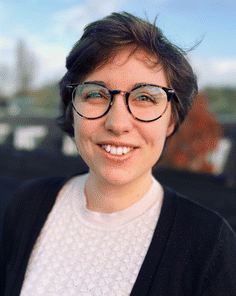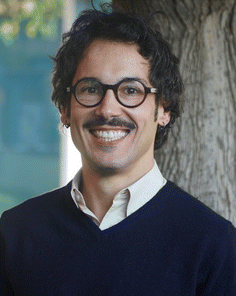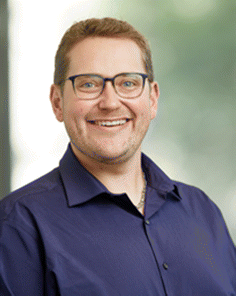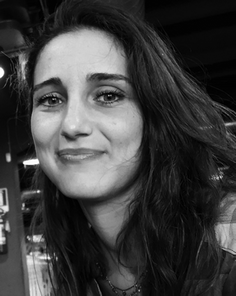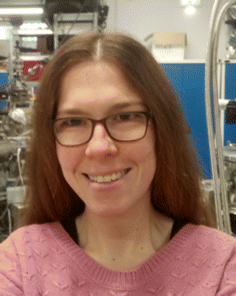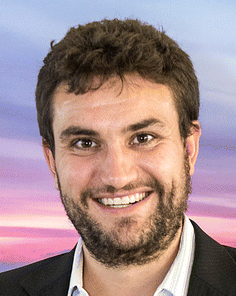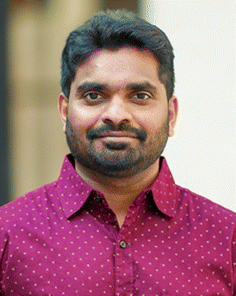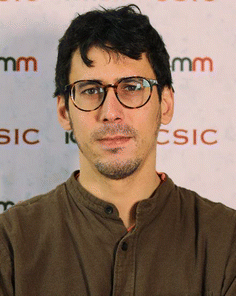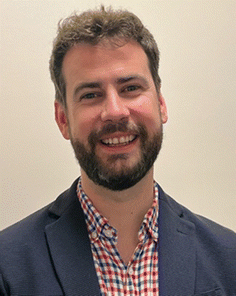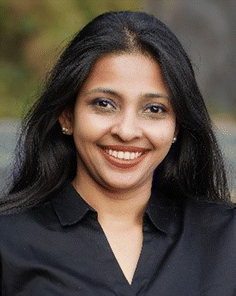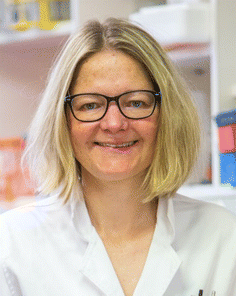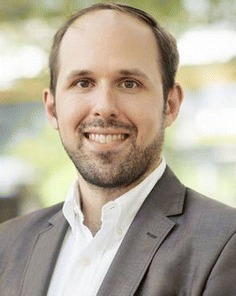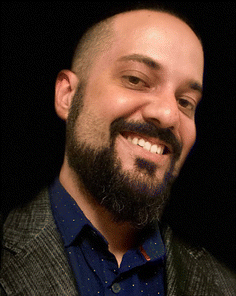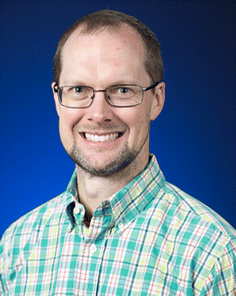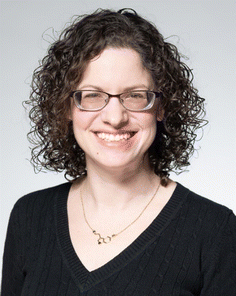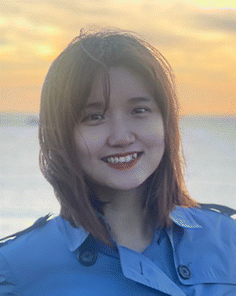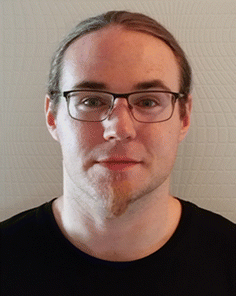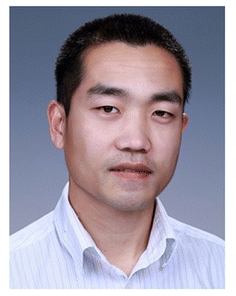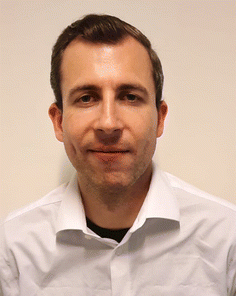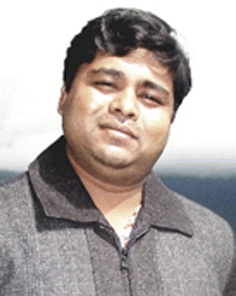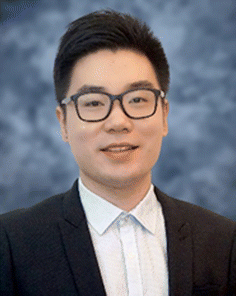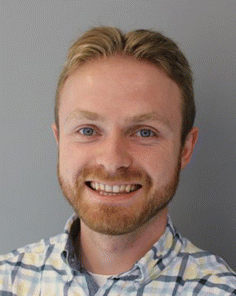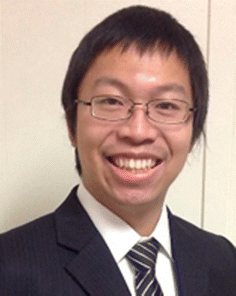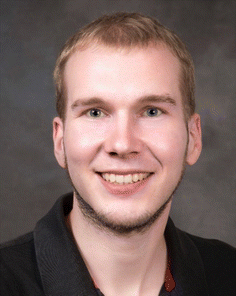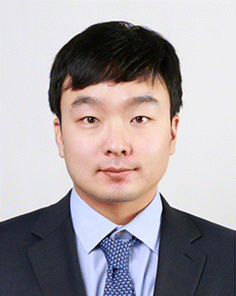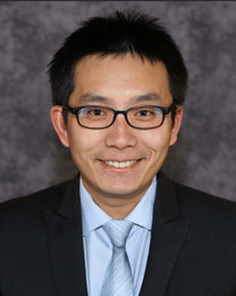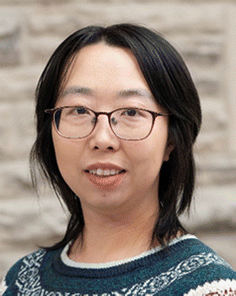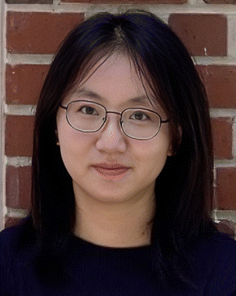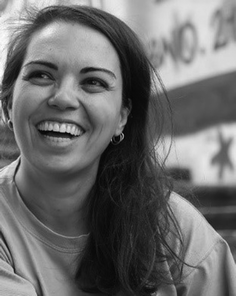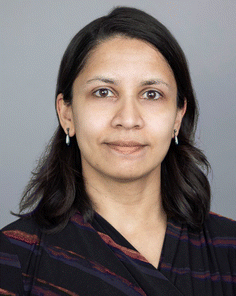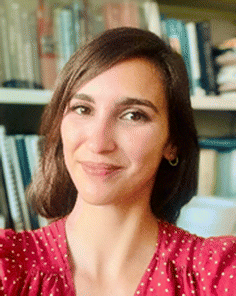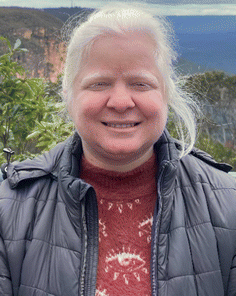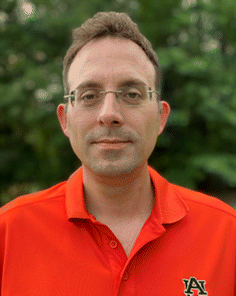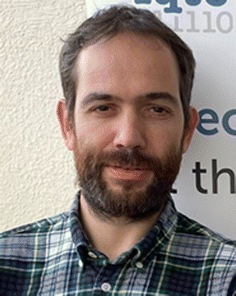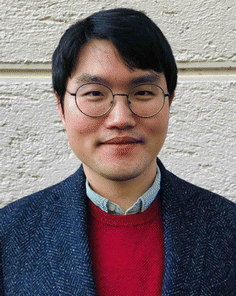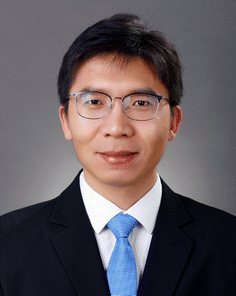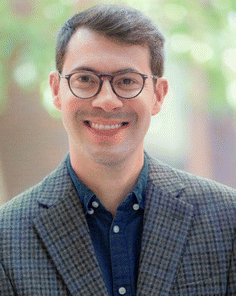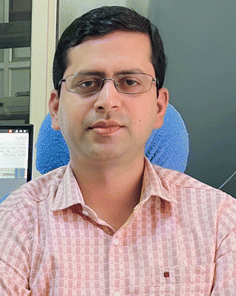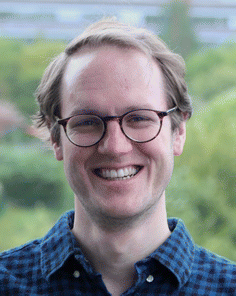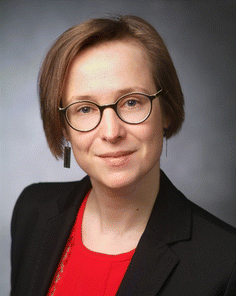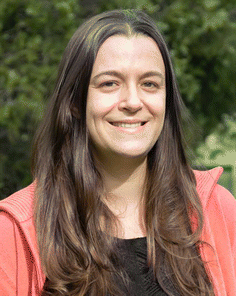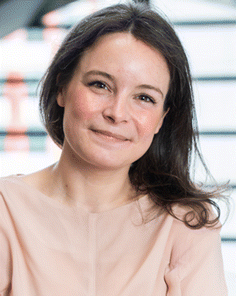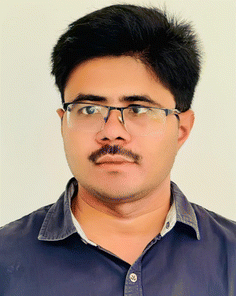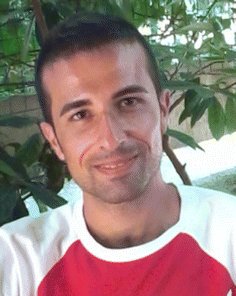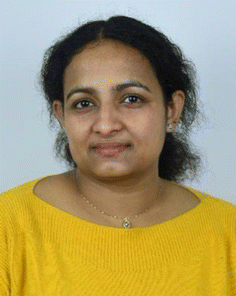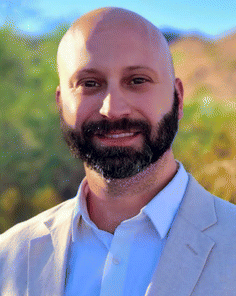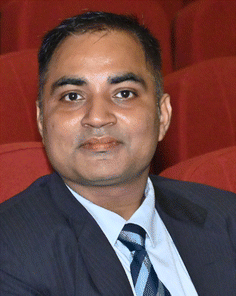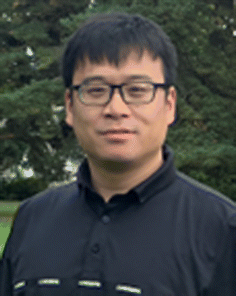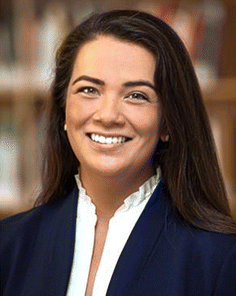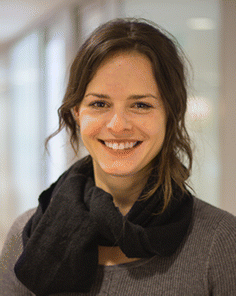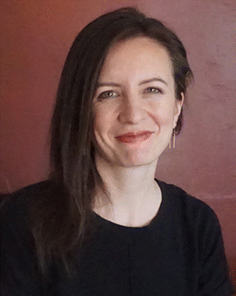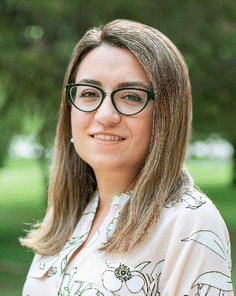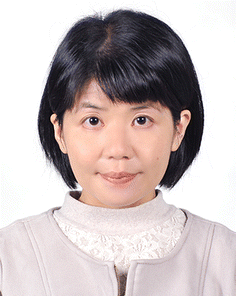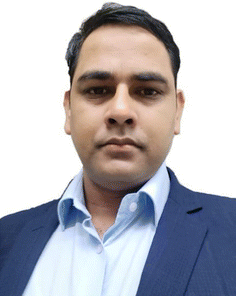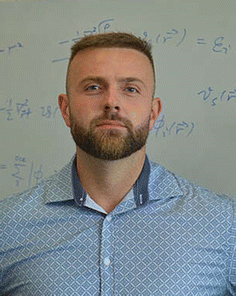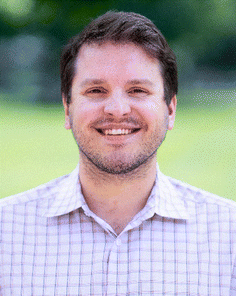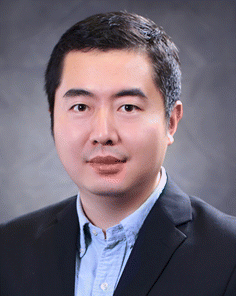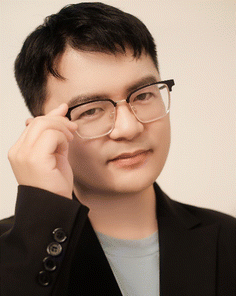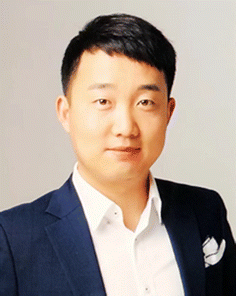Physical Chemistry Chemical Physics profiles: contributors to the 2024 Emerging Investigators collection
Abstract
This profile gathers together the biographies of our 2024 Emerging Investigators, exceptional physical chemists, chemical physicists and biophysical chemists in the early stages of their independent careers. Congratulations to all of the researchers featured, find out more about them below.
Physical Chemistry Chemical Physics is very pleased to welcome you to the 2024 Emerging Investigators themed collection, which highlights the excellent research being carried out by early-career researchers in physical chemistry, chemical physics and biophysical chemistry.
All contributors were nominated for the prestigious PCCP Emerging Investigator Lectureship and invited to contribute to this themed collection by our community. These researchers are making outstanding contributions to physical chemistry, chemical physics and biophysical chemistry and are the rising stars of these fields.
Their profiles are shown in this Editorial and we congratulate them all on being featured. We wish them every success in their future research.
Join us in celebrating their contributions!
Bettina Baumgartner has been a tenure-track assistant professor at the Van't Hoff Institute for Molecular Sciences, University of Amsterdam, since 2024. Bettina earned her PhD from Technische Universität Wien (2019), focusing on infrared-spectroscopy sensing through porous films. She was a JSPS postdoctoral researcher at Osaka Prefecture University (2020), developing IR spectroscopy techniques to study host–guest interactions in MOFs. In 2021, she received a FWF Schrödinger Fellowship to research CO2 photoreduction in MOFs at Utrecht University. Her work combines porous photoactive materials with spectroscopy to explore how spatial confinement affects catalytic activity and selectivity, thereby advancing sustainable chemical processes.
Her contribution to the 2024 PCCP Emerging Investigators collection can be read at https://doi.org/10.1039/D4CP02542C.
Pablo P. Boix became a tenured research scientist at the Instituto de Tecnología Química (CSIC-UPV) in 2023, specializing in perovskite optoelectronics. He earned a PhD in nanoscience (UJI, 2012) and conducted pioneering research on halide perovskites at NTU, Singapore, making significant contributions to materials and devices. He gained industrial experience at GreatCell in Switzerland, before joining the University of València. Boix has authored over 110 publications, holds three patents, and has been recognized as a Highly Cited Researcher by Clarivate. He currently leads several research actions, including the coordination of a HORIZON project and an ERC Consolidator Grant.
His contribution to the 2024 PCCP Emerging Investigators collection can be read at https://doi.org/10.1039/D4CP04143G.
Jared Bruce is currently an assistant professor at the University of Nevada, Las Vegas. He received his PhD, at the University of California, Irvine and completed his postdoctoral work at the Fritz Haber Institute of the Max Planck Society in Berlin, Germany. His current work focuses on the surface structure and chemistry of complex interfaces related to photochemistry and photoelectrochemistry.
His contribution to the 2024 PCCP Emerging Investigators collection can be read at https://doi.org/10.1039/D4CP02967D.
Lucrezia Caselli is a postdoctoral researcher in the Department of Chemistry, University of Florence, and a member of the Italian Consortium for Colloid and Surface Science (CSGI). She received her PhD in chemical sciences from the University of Florence in 2021. After that, she was postdoctoral researcher at the Department of Pharmacy, University of Copenhagen, and at the Department of Physical Chemistry, Lund University. Her scientific interest focuses on the physical chemistry of soft matter in biologically relevant systems, including natural and bio-inspired materials. Her research covers nanoparticle/lipid hybrids for drug delivery, interaction of nanostructured assemblies with model membranes, and the design of peptide-functionalized antimicrobial nanomaterials.
Her contribution to the 2024 PCCP Emerging Investigators collection can be read at https://doi.org/10.1039/D4CP01724B.
Helen Chadwick completed her MChem and DPhil at the University of Oxford. She received an EPSRC doctoral prize to continue her research in Oxford, before moving to the EPFL in Switzerland. Dr Chadwick then obtained an Advanced Postdoc Mobility Fellowship from the Swiss National Science Foundation to spend two years in the Theoretical Chemistry Group at Leiden University in the Netherlands. Following this, Dr Chadwick joined the Surface Dynamics Group at Swansea University, where she works on developing the methods used to interpret data measured on the molecular beam interferometer housed in the group. She was awarded a Future Leaders Fellowship at the beginning of 2024, which aims to develop the apparatus to study gas–surface reactions for the first time.
Her contribution to the 2024 PCCP Emerging Investigators collection can be read at https://doi.org/10.1039/D4CP01785D.
Leonardo Chiappisi, PhD, earned his degree in physical chemistry from Technische Universität Berlin in 2015, studying chitosan-based assemblies with oppositely charged surfactants. Since then, he has been working at the Institut Laue-Langevin, the European flagship for neutron science. His research interests lie in the broad field of soft condensed matter – from colloidal solutions to thin films and liquid foams. He is particularly interested in understanding the thermodynamic forces behind assembly processes and characterizing the resulting structures and functionalities. High-pressure techniques have been pivotal in his recent work.
His contribution to the 2024 PCCP Emerging Investigators collection can be read at https://doi.org/10.1039/D4CP02043J.
Venkata Surya Kumar Choutipalli received his PhD from CSIR-Central Leather Research Institute (AcSIR) in 2021 under the supervision of Prof. V. Subramanian. From 2021–2022, he held a postdoctoral position in the MACATAMO group, University of Limerick, Ireland. From 2022, he has been a postdoctoral research associate at Baylor University, USA, exploring the fascinating realm of computational chemistry and materials science. He delves into the intricacies of boron nitride-based catalysts, particularly for the nitrogen reduction reaction (NRR). His goal is to contribute to eco-friendly pathways for N2 conversion to ammonia, by designing sustainable catalysts and unravelling catalytic mechanisms through state-of-the-art computational techniques.
His contribution to the 2024 PCCP Emerging Investigators collection can be read at https://doi.org/10.1039/D4CP00076E.
Borja Cirera received his PhD in physics (2018) from the Universidad Autónoma de Madrid (Spain), working on lanthanide-based nanoarchitectures on surfaces. After a postdoctoral appointment at IMDEA Nanoscience, he joined the Fritz Haber Institute of the Max Planck Society in February 2019, aiming to investigate the electronic, vibrational and optical properties of low dimensional materials with sub-nanometre resolution. Since 2023, he has been a new junior researcher within the Atracción de Talento program at the Materials Science Institute of Madrid (ICMM-CSIC), leading the SPM-TERS research line in the ESISNA group. His research interests focus on the integration of low-dimensional nanofabrication techniques with the intricate interactions between light and matter at the atomic level.
His contribution to the 2024 PCCP Emerging Investigators collection can be read at https://doi.org/10.1039/D4CP01803F.
Matthew J. Cliffe is an associate professor of chemistry at the University of Nottingham. He obtained his DPhil from the University of Oxford and was a Junior Research Fellow at Sidney Sussex College, University of Cambridge. He joined the University of Nottingham in 2018 as the inaugural Hobday Fellow. His current research interests focus on coordination framework compounds, including metal pseudohalides and metal–organic frameworks, and their magnetic and electronic quantum properties.
His contribution to the 2024 PCCP Emerging Investigators collection can be read at https://doi.org/10.1039/D4CP01265H.
Susmita De has been an associate professor in the Department of Chemistry at the University of Calicut since 2022. She previously worked at the National Institute of Technology, Calicut (2010–2017) as INSPIRE Faculty, and at Cochin University of Science and Technology (2017–2022) as an assistant professor. She earned her PhD in 2010 from the University of Hyderabad under Prof. Eluvathingal D. Jemmis. She also worked with Prof. Gernot Frenking (Philipps-University Marburg, Germany), Prof. Keiji Morokuma (Kyoto University, Japan), and Prof. Martin Zacharias (Technical University Munich, Germany). She received the EMBO VisitingScientist Fellowship in 2018 and the SERB-SIRE Fellowship in 2023. Her research focuses on understanding complex molecular, biomolecular, and material systems using molecular dynamics simulations and quantum mechanical/molecular mechanical methods.
Her contribution to the 2024 PCCP Emerging Investigators collection can be read at https://doi.org/10.1039/D4CP01604A.
Evelyne Deplazes is a senior lecturer at the University of Queensland and an Adjunct Research Fellow at the University of Technology Sydney. She received her PhD in computational biophysics from the University of Western Australia in 2012. She then carried out postdoctoral work at the University of Queensland and Curtin University, funded by early-career fellowships from the Swiss National Science Foundation and the Australian National Health and Research Council. In 2019, she started her independent research group at the University of Technology Sydney, which she now continues at the University of Queensland after taking up a position as a senior lecturer in 2021. Her lab combines molecular simulations and biophysical chemistry experiments to study how small molecules and peptides interact with biological membranes and membrane proteins. The knowledge and tools from her research help develop new pharmaceuticals and understand fundamental processes such as membrane permeation or pore formation and facilitate antifungal drug development.
Her contribution to the 2024 PCCP Emerging Investigators collection can be read at https://doi.org/10.1039/D4CP03254C.
Kai S. Exner began his chemistry studies in 2008 at Justus-Liebig-University (JLU) Giessen, Germany, and received his PhD at the same university in 2015. In 2021, he was appointed tenure-track professor (W1) at the University of Duisburg-Essen (UDE), Germany. He has received numerous awards including the Carl Duisberg Memorial Prize 2023 from the German Chemical Society. His research focuses on the application of ab initio methods in electrocatalysis and batteries, method development in electrochemistry, descriptor-based approaches for materials screening, microkinetic approaches for catalytic processes at electrified interfaces, as well as the investigation of biomolecules for drug delivery or biocatalytic applications.
His contribution to the 2024 PCCP Emerging Investigators collection can be read at https://doi.org/10.1039/D4CP01792G.
Felipe Fantuzzi received his PhD in chemistry from the Universidade Federal do Rio de Janeiro, Brazil. He conducted postdoctoral research at the Center for Molecular Electrocatalysis at the Pacific Northwest National Laboratory (USA) and at the Institute for Sustainable Chemistry and Catalysis with Boron at Julius-Maximilians-Universität Würzburg (Germany). Since 2022, he has been a lecturer in chemistry at the University of Kent, UK, with over 105 peer-reviewed publications to date. His research group focuses on developing and applying computational quantum chemistry methods to investigate electronic structure, bonding, and reactivity in main-group and organometallic compounds. Key interests include boron chemistry, biradicals, small-molecule activation, catalysis, and astrochemistry. He is particularly engaged in designing synthetically feasible molecules with novel bonding motifs and exploring their potential in energy-related technologies and medicinal chemistry. His work aims to advance both theoretical understanding and practical applications in alignment with the United Nations Sustainable Development Goals.
His contribution to the 2024 PCCP Emerging Investigators collection can be read at https://doi.org/10.1039/D4CP04028G.
Ryan C. Fortenberry is an associate professor and Graduate Program Coordinator of Chemistry at the University of Mississippi. He was previously an assistant professor of chemistry at Georgia Southern University beginning in 2013, earning tenure in 2018. Ryan earned a BS in mathematics working in chemistry research with Prof. David H. Magers and an MS in Communication from Mississippi College working with Prof. Cliff Fortenberry; received a PhD at Virginia Tech in theoretical chemistry working with Prof. T. Daniel Crawford; and was a NASA Postdoctoral Program Fellow at the NASA Ames Research Center in Mountain View, California, working under the supervision of the late Dr Timothy J. Lee. He has previously been Chair of the ACS Astrochemistry Subdivision and the Ole Miss Campus Coordinator for the Mississippi Space Grant Consortium. Ryan has over 200 peer-reviewed scientific publications, received several NASA research grants, was selected as the Virginia Tech College of Science 2019–2020 Outstanding Recent Alumni Award, the Mississippi College Dr Cliff Fortenberry Department of Communication Alumnus of the Year in 2021, has been published in Scientific American as well as featured in C&E News, and is the author of Complete Science Communication, a text on how to write and talk about science both to expert and non-expert audiences alike. When not doing science, he enjoys the outdoors, travel, and time with family (including coaching soccer and conducting a children's choir). He has dreams of climbing the highest point in each of the 50 states. He's currently at 45 (plus Puerto Rico).
His contribution to the 2024 PCCP Emerging Investigators collection can be read at https://doi.org/10.1039/D3CP06199J.
Renana Gershoni-Poranne is an assistant professor ofcomputational organic chemistry at the Schulich Faculty of Chemistry at the Technion-Israel Institute of Technology. Before joining the faculty at the Technion, she was a senior scientist (Group Leader) at the Laboratorium für Organische Chemie at ETH Zürich. Her research activities focus on polycyclic aromatic systems, with particular emphasis on developing methods and tools to better understand their properties and reactivity. The work in her group ranges from investigation of fundamental molecular properties and concepts—such as aromaticity, dispersion, and mechanism elucidation—to application of machine-learning and deep-learning models for automated generative molecular design of novel polycyclic aromatic systems with targeted properties. Renana is a Branco Weiss Fellow, Horev Fellow, and Alon Scholarship recipient.
Her contribution to the 2024 PCCP Emerging Investigators collection can be read at https://doi.org/10.1039/D4CP01027B.
Qian Gou completed her PhD under the supervision of Prof. Walther Caminati at the University of Bologna, Italy, in April 2014, where she was honored with the prestigious “Spada” prize for her doctoral research. In May 2015, Dr Gou joined Chongqing University, China, as part of the “100 Young Chongqing University” initiative and was appointed as a research professor. She achieved tenure as a full professor in March 2021. Dr Gou founded the first microwave spectroscopy research group in China and has built two cavity-enhanced Fourier transform microwave spectrometers. Her research primarily focuses on the rotational spectroscopy of interstellar or atmospheric molecules and molecular complexes.
Her contribution to the 2024 PCCP Emerging Investigators collection can be read at https://doi.org/10.1039/D4CP01650E.
Frédéric Guégan obtained his PhD (2016) in chemistry from the University of Lyon, France, under the supervision of Prof. Dominique Luneau (LMI) and Prof. Christophe Morell (ISA). He then joined the group of Prof. Hélène Gérard (LCT) at Sorbonne Université, France, for a post-doc within the LabEx MiChem. In 2018, he was recruited as Maître de Conférences at the University of Poitiers (IC2MP). He conducts research on the theoretical exploration of molecular reactivity and selectivity, from the unravelling of reaction profiles with DFT to the development and use of electron-density based indices within conceptual DFT.
His contribution to the 2024 PCCP Emerging Investigators collection can be read at https://doi.org/10.1039/D4CP01721H.
Gao-Lei Hou is currently a professor at Xi'an Jiaotong University (China). He obtained his BS degree and PhD from the University of Electronic Science and Technology of China (2009) and Institute of Chemistry, Chinese Academy of Sciences (2014), respectively. He conducted professional postdoctoral training with partial teaching duty at Pacific Northwest National Laboratory (USA), ETH Zurich (Switzerland), and KU Leuven (Belgium) from 2014 to 2021. With a background in chemical physics, molecular physics, and quantum chemical computations, he is now working in the interfaces of physics, chemistry, and astronomy, with current research interest in laboratory astrophysics and astrochemistry, catalytic energy conversion and transformation, and cluster-based functional materials and prototype devices.
His contribution to the 2024 PCCP Emerging Investigators collection can be read at https://doi.org/10.1039/D4CP00146J.
Thomas-Christian Jagau, born 1986 in Frankfurt has held a position as associate professor at KU Leuven since 2020. He obtained his doctorate in 2013 from the University of Mainz working under the supervision of Prof. Jürgen Gauss. He then joined the University of Southern California where he started working on electronic resonances under the supervision of Anna Krylov. In 2015, he started his independent research career at the University of Munich supported by the Emmy Noether program. In 2019, he won the ADUC, Hellmann, and Ernst Haage Awards and he also obtained an ERC Starting Grant. In 2023, he was awarded the Dirac Medal by the World Association of Theoretical and Computational Chemists.
His contribution to the 2024 PCCP Emerging Investigators collection can be read at https://doi.org/10.1039/D4CP02085E.
Biman Jana received his PhD from the Indian Institute of Science, Bangalore, India, with Prof. Biman Bagchi. After a postdoctoral stay with Prof. Jose Onuchic at UCSD and Rice University (2011–2013), he started his independent career at the Indian Association for the Cultivation of Science, Kolkata, as an assistant professor. Since 2021, he has been a professor in the School of Chemical Sciences. His group is interested in theoretical and computational biophysical studies exploring allosteric signal transduction, developing ML models to decipher the protein folding landscape, ice growth modulation by ice binding proteins and mechanochemical cycle of motor proteins.
His contribution to the 2024 PCCP Emerging Investigators collection can be read at https://doi.org/10.1039/D4CP01806K.
Zhaoyu Jin is a professor at the University of Electronic Science and Technology of China. He obtained his BSc degree in chemistry from Sichuan University in 2013, followed by a PhD in analytical chemistry from the same university in 2017. After graduation, he pursued a postdoctoral position with Prof. Allen J. Bard at the University of Texas at Austin from 2017 to 2021. Currently, Dr Jin serves as the principal investigator of the Advanced Electrochemical Technology group. His research interests focus on the application of scanning electrochemical probe microscopy to gain fundamental insights into energy and environmental catalysis.
His contribution to the 2024 PCCP Emerging Investigators collection can be read at https://doi.org/10.1039/D4CP01680G.
Nathanael M. Kidwell is an associate professor of chemistry at William & Mary. His research group uses molecular spectroscopy and chemical dynamics techniques to explore the chemical composition and chemical transformations relevant to atmospheric aerosols, energy, and physical chemistry problems. He received his PhD in 2014 from Purdue University in Prof. Timothy Zwier's group and carried out his postdoctoral research with Prof. Marsha Lester. Nathanael's research group started in 2016 at William & Mary, and he is the recipient of a 2023 NSF CAREER award and a 2024 Flygare award of the International Symposium on Molecular Spectroscopy.
His contribution to the 2024 PCCP Emerging Investigators collection can be read at https://doi.org/10.1039/D4CP02254H.
Yao-Feng Chang is currently a Memory Reliability Engineer at Intel. He received his BS degree in electrical engineering from the National Sun Yat-sen University in 2007; MS degree in electronics engineering from the National Chiao Tung University in 2009; and PhD in the Department of Electrical and Computer Engineering from The University of Texas at Austin in 2015. He has published over 100 journal publications and conference proceedings and has been awarded numerous research awards. His research focuses on SiOx- and SiNx-based ReRAM, stateful Boolean logic and synaptic post-Moore computing, and selector integration for large-scale low power array design.
His contribution to the 2024 PCCP Emerging Investigators collection can be read at https://doi.org/10.1039/D4CP02669A.
Henrik R. Larsson studied chemistry in Kiel (Germany) and in Lund (Sweden). He received his Doctorate in theoretical chemistry working in the groups of Professors Bernd Hartke (Kiel) and David Tannor (Weizmann Institute of Science, Israel). He then joined the group of Prof. Garnet Chan at California Institute of Technology as a postdoctoral scholar. Afterwards, he joined the Department of Chemistry and Biochemistry at the University of California, Merced as an assistant professor. His research focuses on developing and utilizing tools for simulating and understanding quantum effects in molecular systems. His recent applications range from understanding entangled vibrational motion in floppy molecules, using strong laser fields to control the motion of electrons, to predicting complex bonding situations in strongly correlated transition-metal clusters.
His contribution to the 2024 PCCP Emerging Investigators collection can be read at https://doi.org/10.1039/D4CP02653E.
Dong Woog Lee received his BS in chemical and biomolecular engineering at KAIST in 2008 and his PhD in chemical engineering from UCSB in 2014 under the supervision of Prof. Jacob Israelachvili. He continued his work in the same lab for two more years as a postdoctoral researcher (2014–2016) and is currently an associate professor at the Ulsan National Institute of Science and Technology (UNIST). His research focuses on studying the fundamental interaction forces between bio/biomimetic molecules (biomolecules, polymers, proteins) using a surface forces apparatus (SFA) and applying them to valuable materials such as polymer composites, adhesives, and coatings.
His contribution to the 2024 PCCP Emerging Investigators collection can be read at https://doi.org/10.1039/D4CP01739K.
Li-Chiang Lin is an associate professor in chemical engineering at the National Taiwan University. He was formerly an assistant professor at Delft University of Technology, followed by an appointment as an assistant professor and the inaugural holder of the Umit S. Ozkan Professorship at Ohio State University. He obtained his PhD in chemical engineering from the University of California at Berkeley and conducted postdoctoral research at the Massachusetts Institute of Technology in Materials Science and Engineering. His research lies in the computational materials field; he applies and develops computational methods to study nanoporous materials for energy-related applications such as separation.
His contribution to the 2024 PCCP Emerging Investigators collection can be read at https://doi.org/10.1039/D4CP01830C.
Lijia Liu received her PhD in chemistry at Western University in 2012. Trained as a chemist and a synchrotron spectroscopist, she did her postdoc at the University of Saskatchewan, developing X-ray spectroscopy technique for in situ material analysis. She later became an associate professor at the Institute of Functional Nano and Soft Materials (FUNSOM), Soochow University, developing perovskite-based optoelectronic devices. In 2020, she started her independent career at Western University as an assistant professor. Her research focuses on the synthesis of persistent luminescent nanomaterials for optical-based bioimaging, sensing, and anticounterfeiting, and spectroscopic studies on the mechanism of persistent luminescence phenomena.
Her contribution to the 2024 PCCP Emerging Investigators collection can be read at https://doi.org/10.1039/D4CP01775G.
Mingjie Liu received her PhD in materials science and nanoengineering from Rice University in 2016. She finished her post-doctoral training at Brookhaven National Laboratory and Massachusetts Institute of Technology in 2020 and 2022, respectively. After that, she joined the Department of Chemistry in the University of Florida as an assistant professor in Fall 2022. Her research interests are AI-driven computational platform development for carbon-based materials in energy applications.
Her contribution to the 2024 PCCP Emerging Investigators collection can be read at https://doi.org/10.1039/D4CP02300E.
Donatella Loru is a senior scientist at the Deutsches Elektronen-Synchrotron (DESY) in Hamburg, Germany. She obtained her MSc from the University of Bologna in 2013 and her PhD in chemistry from King's College London in 2018. During her PhD research, she developed a broadband chirped-pulse Fourier transform spectrometer for gas-phase molecular structure investigations. Joining Prof. Dr Melanie Schnell's group at DESY in 2018, she began working in the field of astrochemistry. In 2019, she was awarded the Alexander von Humboldt Postdoctoral Fellowship. Using spectroscopic techniques, such as microwave spectroscopy and IR-UV ion dip spectroscopy, her current research focuses on polycyclic aromatic hydrocarbons and their reactivity under plasma conditions.
Her contribution to the 2024 PCCP Emerging Investigators collection can be read at https://doi.org/10.1039/D4CP03030C.
Shaama Mallikarjun Sharada is an associate professor in the Mork Family Department of Chemical Engineering and Materials Science and associate professor (by Courtesy) in the Department of Chemistry at the University of Southern California. Her research efforts span algorithm development and applications in thermal, photoredox, and electro-catalysis across molecular and extended catalytic systems. Prof. Sharada received her Bachelor's and Master's degrees in chemical engineering from the Indian Institute of Technology, Bombay (India), where she was awarded the Institute Gold Medal. She received her PhD in chemical engineering from the University of California at Berkeley for developing efficient reaction path search algorithms for catalysis, under the supervision of Professors Alexis T. Bell and Martin Head-Gordon. As a postdoctoral researcher at Stanford University with Professors Jens Nørskov, and Thomas Bligaard, her work spanned the development of machine learning density functionals and surface chemistry benchmarking databases.
Her contribution to the 2024 PCCP Emerging Investigators collection can be read at https://doi.org/10.1039/D4CP02929A.
Helena Mateos, born in Madrid, is currently a lecturer at the University of Bari, where she earned her PhD in chemical and molecular science in 2020 under the Horizon 2020 Marie Curie project, in collaboration with P&G's Newcastle Innovation Centre. She holds a Bachelor's degree in chemistry from Complutense University of Madrid and a Master's in physical chemistry from Lund University. Her research focuses on colloidal stability interactions involving biological components and nanoparticles, and the development of diagnostic tools using extracellular vesicles.
Her contribution to the 2024 PCCP Emerging Investigators collection can be read at https://doi.org/10.1039/D4CP02060J.
Nisha Mehta is a postdoctoral fellow at the Weizmann Institute of Science. She obtained her PhD in 2021 from The University of Melbourne, Australia in the group of Dr Lars Goerigk and then relocated to the Weizmann Institute of Science for her postdoctoral research with Prof. Jan (Gershom) Martin. Her area of expertise is theoretical and computational quantum chemistry, with a focus on density functional theory and ab initio methods. Dr Mehta is The Sir Charles Clore Fellow, Dean of Faculty Fellow, and Weizmann Postdoctoral Excellence Fellow. In October 2023, she received the QSCP Promising Scientist Award, one of the highest accolades for early-career researchers. Dr Mehta received the 2019 Indian National Award for Individual Excellence – Role Model, a prestigious honor bestowed by the President.
Her contribution to the 2024 PCCP Emerging Investigators collection can be read at https://doi.org/10.1039/D4CP01877J.
Evangelos Miliordos earned his PhD in computational chemistry in 2010 from the National and Kapodistrian University of Athens, Greece, under the supervision of Prof. Aristides Mavridis. He then moved to the United States of America and was employed as a post-doctoral researcher by the Michigan State University, the Pacific Northwest National Laboratory, and the University of Delaware. He started his independent career in 2016 at the Department of Chemistry and Biochemistry of Auburn University, and he is currently the James E. Land Associate Professor. His research interests include quantum chemical calculations on transition metal compounds and systems with solvated electrons.
His contribution to the 2024 PCCP Emerging Investigators collection can be read at https://doi.org/10.1039/D4CP02189D.
Ángel Morales-García is a lecturer lrofessor at the Universitat de Barcelona (UB) and researcher at the Institut de Química Teòrica i Computacional (IQTCUB). His research focuses on providing innovative theoretical and computational chemistry grounded models to predict and understand a material’s properties, delivering inputs to experimentalists to rationalize experimental observations. A relevant field of interest in his career is the search for improved photoactive nanoparticles for solar-to-hydrogen conversion. His research covers fundamental and applied viewpoints in the areas of heterogeneous catalysis, photocatalysis, materials science, energy and environment.
His contribution to the 2024 PCCP Emerging Investigators collection can be read at https://doi.org/10.1039/D4CP01757A.
Chang Woo Myung is currently an assistant professor in the Department of Energy Science at Sungkyunkwan University. He earned his BS and MS from Pohang University of Science and Technology (POSTECH) and his PhD from Ulsan National Institute of Science and Technology (UNIST) in 2019. He furthered his research as a postdoctoral fellow at ETH Zurich/USI and the University of Cambridge. He served as an assistant professor in the Department of Chemistry at Chungnam National University. His primary research focuses on the advancement of Bayesian machine learning potentials, first-principles simulations of complex energy materials, and the development of quantum computing algorithms.
His contribution to the 2024 PCCP Emerging Investigators collection can be read at https://doi.org/10.1039/D4CP01801J.
Haiyang Niu is a professor at the Northwestern Polytechnical University in China. He obtained his Doctoral degree in 2015 from the Institute of Metal Research, Chinese Academy of Sciences, under the supervision of Prof. Dianzhong Li and Prof. Xingqiu Chen. From 2013 to 2016, he researched at the Moscow Institute of Physics and Technology and later pursued postdoctoral work at Stony Brook University, US, under the supervision of Prof. Artem R. Oganov. Subsequently, he held a postdoctoral position with Prof. Michele Parrinello at ETH Zurich from 2016 to 2019. His current research interests include the development and application of molecular simulation methods, structure prediction, computational material discovery, and the study of matter phase transitions.
His contribution to the 2024 PCCP Emerging Investigators collection can be read at https://doi.org/10.1039/D4CP02424A.
Amnon Ortoll-Bloch received his PhD in materials chemistry under the supervision of Prof. Lara Estroff at Cornell University in 2020. He then worked as a Consortium for Faculty Diversity Postdoctoral Fellow at Williams College. In July 2022, he was appointed as an assistant professor of chemistry at Bowdoin College. His research interests include solution-based crystallization pathways of ionic, hybrid organic–inorganic, and molecular crystals, the use of additives to tune crystallization outcomes, and the elucidation of solution speciation relevant to crystal nucleation and growth.
His contribution to the 2024 PCCP Emerging Investigators collection can be read at https://doi.org/10.1039/D4CP02981J.
Aditya Kumar Padhi is an assistant professor at the School of Biochemical Engineering, IIT (BHU), Varanasi, India. He holds a PhD from IIT Delhi, India, and completed his postdoc at RIKEN, Yokohama, Japan. His research spans theoretical chemistry, biophysical chemistry, and computational biology, focusing on structural and translational bioinformatics, computational biophysics, and high-throughput protein design. Dr Padhi specializes in predictive and biomolecular modeling, employing computational pipelines to identify resistance mutations and design proteins incorporating non-natural amino acids. With over 50 publications and an impact factor exceeding 250, he has been recognized with the Distinction in Doctoral Research award from IIT Delhi, as well as the Young Scientist Awards from BIDDS, India, and the Biofootprints Foundation, India. Dr Padhi's research is supported by international fellowships and national agencies, emphasizing his dedication to the de novo design and redesign of proteins for biotechnological and therapeutic applications.
His contribution to the 2024 PCCP Emerging Investigators collection can be read at https://doi.org/10.1039/D4CP01014K.
G. Barratt Park grew up in South Carolina, USA, and The Netherlands. He received a Bachelor's degree in chemistry from Davidson College and obtained a PhD in high-resolution spectroscopy under Prof. Bob Field at MIT. He moved to Göttingen, Germany as a Humboldt Postdoctoral Fellow under Prof. Alec Wodtke and subsequently served as Project Group Leader on free electron laser based surface science experiments before moving to Texas Tech University as an Assistant Professor of chemistry and biochemistry. He is establishing a diverse research program encompassing high-resolution microwave spectroscopy and chemical reaction dynamics at surfaces.
His contribution to the 2024 PCCP Emerging Investigators collection can be read at https://doi.org/10.1039/D4CP02640C.
Eva Perlt received her PhD from the University of Leipzig under the supervision of Prof. Barbara Kirchner. After a PostDoc stay at the University of Bonn she moved to the University of California, Irvine, to join the group of Prof. Filipp Furche and work on nuclear quantum effects in photocatalytic reactions. She joined the Freie Universität Berlin before she accepted the position as a Junior Research Group Leader at the Otto Schott Institute of Materials Research at the Friedrich Schiller University in Jena. Her research is focused on stimuli-responsive materials and she is an active developer of the Turbomole program.
Her contribution to the 2024 PCCP Emerging Investigators collection can be read at https://doi.org/10.1039/D4CP01789G.
Sonia Marggi Poullain is an assistant professor at the Physical Chemistry Department at Complutense University of Madrid in Spain. She received her PhD in Physics at Paris Sud University (France) on the role of Rydberg states in photoionization and ion pair formation of nitrogen dioxide. After postdoctoral appointments first at Complutense University and then at Autónoma University in Madrid (Spain), she obtained a Marie Curie Individual Fellowship in 2019 for a postdoctoral stay at UC Berkeley (USA) to work on attosecond transient absorption spectroscopy. She is interested in photo-induced molecular dynamics in the gas-phase using different light sources including synchrotron radiation, nano- and femtosecond lasers as well as attosecond pulses.
Her contribution to the 2024 PCCP Emerging Investigators collection can be read at https://doi.org/10.1039/D4CP01984A.
Alice L. B. Pyne is an UKRI Future Leaders Fellow and senior lecturer at the University of Sheffield. She received her PhD in biophysics in 2015 from University College London and was subsequently awarded EPSRC and MRC Fellowships to establish her independent research group. Her research combines high-resolution atomic force microscopy (AFM) and the development of open-source image analysis tools to determine how the structural and conformational heterogeneity of individual DNA molecules affects fundamental biological processes. She was recently awarded the Royal Microscopy Society's AFM & SPM award in recognition of her work.
Her contribution to the 2024 PCCP Emerging Investigators collection can be read at https://doi.org/10.1039/D4CP01795A.
S. Rajagopala Reddy obtained his PhD in theoretical chemistry with Prof. Susanta Mahapatra at the University of Hyderabad in 2014. He worked as a postdoctoral fellow for 5 years with Prof. Michael Thoss at the University of Erlangen-Nuremberg (2014–2017) and University of Freiburg (2019–2020), and Prof. Benoit Champagne at the University of Numur (2017–2018). Since June 2020, he has been working as an assistant professor in the Department of Chemistry, Central University of Rajasthan. His research interests are photophysics and photodynamics.
His contribution to the 2024 PCCP Emerging Investigators collection can be read at https://doi.org/10.1039/D4CP02656J.
Vito Rizzi studied chemistry at the University of Bari, Department of Chemistry, Italy, and graduated as MS in 2012. He received his PhD in 2016 by defending a thesis about the use of materials for water remediation and biomedical applications. After three years of postdoctoral fellowship, in 2020 he obtained the position of assistant professor in physical chemistry at the same institution. He has published more than 50 research articles in international journals. He is an Editor for the journal Sustainability. His research activity is focused on the development of green approaches for synthesizing nanomaterials and innovative composite substrates for water remediation.
His contribution to the 2024 PCCP Emerging Investigators collection can be read at https://doi.org/10.1039/D4CP00174E.
Assa Aravindh Sasikala Devi is a researcher and docent (Adjunct professor) at the Faculty of Technology, University of Oulu, Finland. She obtained her PhD from Indira Gandhi Center for Atomic research, India, and further carried out postdoctoral research at the Institute of Mathematical Sciences, India, and King Abdullah University of Science and Technology, Saudi Arabia. She carries out research on energy materials using atomistic modelling and simulations, enabling a green energy transition from conventional fossil fuels, focusing on sustainability. Specifically, Assa's research activities are in three major areas: (a) efficient catalytic materials, (b) cathode materials for batteries, (c) advance steels for a green transition.
Her contribution to the 2024 PCCP Emerging Investigators collection can be read at https://doi.org/10.1039/D4CP02233E.
Scott G. Sayres obtained a BS in both chemistry and mathematics from Shippensburg University in 2004 and earned his PhD in 2010 at The Pennsylvania State University with Prof. A. W. Castleman, Jr. He was a postdoctoral fellow at UC Berkeley with Prof. Stephen R. Leone, and then started as a research assistant professor in 2014 at Arizona State University. In 2017, he began as an assistant professor in the School of Molecular Sciences and was promoted to associate professor in 2024. His research focuses on the development of novel nanostructures with atomical precision and understanding the ultrafast dynamics of clusters and molecules.
His contribution to the 2024 PCCP Emerging Investigators collection can be read at https://doi.org/10.1039/D4CP01544D.
Veerendra K. Sharma is a scientist currently serving in the Solid State Physics Division at Bhabha Atomic Research Centre (BARC), India. He also holds the position of associate professor at Homi Bhabha National Institute (HBNI), Mumbai. His research encompasses a broad range of fields, including membrane biophysics, soft condensed matter, complex fluids, and energy materials. He has expertise in neutron scattering and molecular dynamics (MD) simulations to investigate these systems, providing valuable insight into their structure and dynamics. Prof. Sharma earned his PhD from HBNI, Mumbai, where his doctoral work was recognized with the HBNI Outstanding Doctoral Thesis Award. He completed his postdoctoral research at Oak Ridge National Laboratory (ORNL), USA. As a testament to his exceptional contributions to science, Prof. Sharma has been inducted into all three of India's premier national science academies in their respective young scientist leagues. He has been elected as an Associate of the Indian Academy of Sciences (IASc) and holds membership in the Indian National Young Academy of Sciences (INYAS), the Indian National Science Academy (INSA), and The National Academy of Sciences, India (NASI). Prof. Sharma has received numerous prestigious accolades, including the INSA Distinguished Lecturer Fellowship, NASI Young Scientist Award, IPA-Buti Foundation Award, SMC Bronze Medal, Best Young Physicist Award at the Young Physicists' Colloquium, and the DAE Young Scientist Award. His contributions extend to leadership roles, having served as a national core committee member of INYAS from 2022 to 2024.
His contribution to the 2024 PCCP Emerging Investigators collection can be read at https://doi.org/10.1039/D4CP01813C.
Xiang Sheng obtained his PhD from Shandong University in 2014, after which he dedicated several years to advancing his research in Fahmi Himo's group at Stockholm University. In 2021, he returned to China, joining the Tianjin Institute of Industrial Biotechnology, Chinese Academy of Sciences, as a Principal Investigator. His research focuses on the development and utilization of computational techniques to explore enzymatic reactions and strategically design enzymes, aiming at innovating new biocatalysts for the biotechnology and industrial processes.
His contribution to the 2024 PCCP Emerging Investigators collection can be read at https://doi.org/10.1039/D4CP00552J.
Emily A. Sprague-Klein is an assistant professor of physical chemistry at Brown University with extensive experience in nanomaterials fabrication and spectroscopy. She began her research career as an undergraduate student at the University of Illinois at Urbana-Champaign in the Department of Physics as a dual degree student in engineering physics, BS, and classical piano performance, BM, graduating in 2012. She then earned her PhD in 2018 with Richard Van Duyne at Northwestern University in applied physics. As a postdoctoral associate with Professors Lin X. Chen and David M. Tiede, she developed in situ electrochemical spectroscopic methods for investigating charge transfer coupled redox reactions in water-splitting metal oxide materials. At Brown University, she leads a research group focused on plasmon-driven chemical reactions for facilitating transient photochemistry with special emphasis on the development of surface-enhanced spectroscopies both ultrafast and steady-state in nanomaterials of varying compositions and morphologies.
Her contribution to the 2024 PCCP Emerging Investigators collection can be read at https://doi.org/10.1039/D4CP01993H.
Stella Stopkowicz is a professor of theoretical chemistry at Saarland University (Germany) and adjunct professor at the Hylleraas Centre at the University of Oslo (Norway). She received her PhD from the University of Mainz (Germany). After a postdoctoral stay at the University of Oslo (Norway), she became a group leader at the University of Mainz. Recently, she was awarded the International Academy of Quantum Molecular Science medal for her research on molecules within strong electromagnetic fields that lead to the assignment of metals in the atmosphere of a strongly magnetic white dwarf star. Further interests include relativistic effects, spectroscopy, and photochemistry.
Her contribution to the 2024 PCCP Emerging Investigators collection can be read at https://doi.org/10.1039/D4CP03103B.
Mercedes K. Taylor is an assistant professor of chemistry at the University of Maryland, College Park. She leads a research group that specializes in the synthesis of crystalline, porous materials. Her research team designs novel materials, including covalent organic frameworks and porous polymers, that can be used to capture valuable or toxic ions from water. Prior to joining the faculty at the University of Maryland, Prof. Taylor held a Jill Hruby Fellowship at Sandia National Labs. She received her PhD from the University of California, Berkeley, where she researched metal–organic frameworks in the lab of Prof. Jeffrey Long.
Her contribution to the 2024 PCCP Emerging Investigators collection can be read at https://doi.org/10.1039/D4CP02338B.
Hedieh Torabifard received a BSc in chemistry from Shahid Beheshti University, a MSc in computational organic chemistry from Sharif University of Technology, and a PhD in theoretical and computational chemistry from Wayne State University. Afterward, she worked as a postdoctoral fellow at the University of Michigan. In 2020, she started her independent career as an assistant professor at the University of Texas at Dallas. Her research interests include the development and application of computational modeling to investigate transmembrane proteins, post translational modification of histone tails, ionic liquids, and deep eutectic solvents with an emphasis on using and developing polarizable force field.
Her contribution to the 2024 PCCP Emerging Investigators collection can be read at https://doi.org/10.1039/D4CP01809E.
Yi-Jung Tu is an assistant professor in the Applied Chemistry Department at National Chi Nan University (Taiwan) where she earned her BS and MS degrees. After finishing her PhD in chemistry at Wayne State University (Detroit, USA) under the supervision of Prof. H. Bernhard Schlegel and Prof. G. Andres Cisneros, she continued working in computational chemistry as a postdoctoral fellow at Georgia Institute of Technology (Atlanta, USA). Her current research interests include molecular structure and dynamics of solutions and electrochemical interfaces.
Her contribution to the 2024 PCCP Emerging Investigators collection can be read at https://doi.org/10.1039/D3CP05617A.
Chandrabhan Verma works at the Department of Chemical Engineering, Khalifa University of Science and Technology, Abu Dhabi, UAE. He received his PhD from the Department of Chemistry, IIT-BHU Varanasi. Dr Verma has published over 250 research and review articles. He has a total citation of more than 12900 with an H-index of 62 and an i-10 index of 167. His current research focuses on designing and developing industrially applicable corrosion inhibitors. Dr Verma has edited/authored over 40 books. Dr Verma received several awards for his academic achievements, including a Gold medal in MSc (Organic Chemistry; 2010) and Best Publication awards from the Global Alumni Association of IIT-BHU (Second Prize 2013).
His contribution to the 2024 PCCP Emerging Investigators collection can be read at https://doi.org/10.1039/D3CP06057H.
Stefan Vučković, born and raised in Serbia, completed his BS in chemistry in Belgrade before being directly admitted to a PhD program with Prof. Paola Gori-Giorgi at VU Amsterdam. He then worked as a postdoc at the University of California, Irvine, with Prof. Kieron Burke, followed by brief research stays with Dr Hilke Bahmann in Germany and Fabio Della Sala at CNR, Italy. Vučković's research group at the University of Fribourg, Switzerland, develops electronic structure methods for strongly correlated systems and noncovalent interactions, along with the critical application of artificial intelligence in (quantum) chemistry. His work has been recognized by an ERC Starting Grant, an SNSF Starting Grant, Marie Skłodowska-Curie and Humboldt Fellowships, a Rubicon NWO Fellowship, the Löwdin Outstanding Postdoc Award, and the Dick Stufkens Prize, among others.
His contribution to the 2024 PCCP Emerging Investigators collection can be read at https://doi.org/10.1039/D4CP00878B.
Robert B. Wexler is an assistant professor of chemistry at Washington University in St. Louis. Before joining this position, he pursued his PhD in chemistry at the University of Pennsylvania under the guidance of Andrew Rappe. After that, he worked as a postdoctoral researcher with Emily Carter at Princeton University. The primary objective of his research is to find out how crystallographic imperfections can be utilized to enhance materials' properties to tackle sustainable energy issues. To address these questions, his team develops computational methods for calculating the thermodynamics of complex, interacting systems utilizing statistical mechanical approaches and phenomenological model building.
His contribution to the 2024 PCCP Emerging Investigators collection can be read at https://doi.org/10.1039/D4CP00050A.
Chuang Zhang graduated from the University of Science and Technology of China in 2008, and received his PhD from the Institute of Chemistry, Chinese Academy of Sciences (ICCAS) in 2013. After that, he joined the Department of Physics & Astronomy, University of Utah, for postdoctoral research. In 2017, he moved back to ICCAS and started his independent research career at the key laboratory of photochemistry. Now his group focuses on spin photochemistry, i.e., magnetic field effects and spin-related properties of excited states in molecular materials, including magneto-optical spectroscopy for excited states, spin-dependent photo-/electroluminescence, spin-enhanced electro-/photocatalysis, and magnetic field effects on (photo-)chemical reactions.
His contribution to the 2024 PCCP Emerging Investigators collection can be read at https://doi.org/10.1039/D4CP02801E.
Jun Zhang received his BS degree and PhD from Nankai University (China) in 2009 and University of Cologne (Germany) in 2015. After that, he worked as a postdoctoral researcher at the University of Illinois at Urbana-Champaign and Pacific Northwest National Laboratory. In 2021, he joined Shenzhen Bay Laboratory and started leading a theoretical chemistry group. Jun Zhang has developed the chemical cluster structure prediction software ABCluster and the molecular integral evaluation library libreta, both of which are widely used. Now, he is leading the development of computational chemistry and biology software called Qbics. He is also implementing his latest theoretical works, such as target state optimization density functional theory (TSO-DFT) and many-body energy decomposition analysis, in this software.
His contribution to the 2024 PCCP Emerging Investigators collection can be read at https://doi.org/10.1039/D4CP01259C.
Quanzhen Zhang, born in May 1991, graduated with a Master’s degree from Kwangwoon University in South Korea in 2016, and a doctoral degree from Osaka University in Japan in 2020. In May 2020, he joined the Beijing Institute of Technology as a special postdoctoral fellow. In March 2023, he joined the School of Integrated Circuit and Electronics at Beijing Institute of Technology as an associate professor. At present, his main research directions are single atom molecular electronics and its physical property measurement and manipulation based on scanning probe microscopy technology, as well as the construction and physical property characterization of two-dimensional electronic materials and low dimensional functional nanostructures. At present, he has published more than 50 important academic papers, including 12 high-quality academic papers published as the first author in top international journals including JACS, Nat. Commun., ACS Nano, Nano Lett., JPCL.
His contribution to the 2024 PCCP Emerging Investigators collection can be read at https://doi.org/10.1039/D4CP01791A.
| This journal is © the Owner Societies 2025 |

